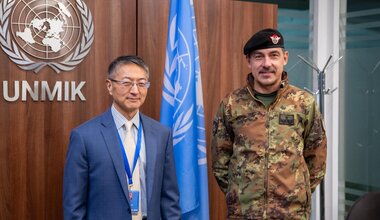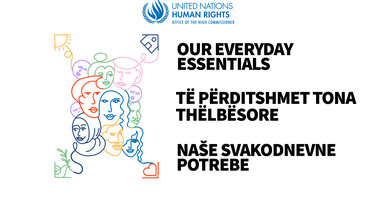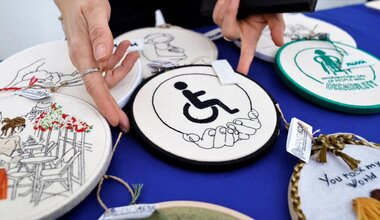More than Words: How a mobile app is bringing Kosovo together through language-learning
On a train journey not very long ago, Ivana Stevanović, a Kosovo-Serb librarian, was sharing a compartment with an Albanian-speaking Kosovo-Ashkali passenger. Ordinarily, communication between the two would have been impossible.
However, since Stevanović had been learning Albanian through VocUp - an online platform for learning Albanian and Serbian language created by the NGO, Center for Social Initiatives, and supported by the International Organization on Migration (IOM), UNMIK and the British Embassy - she was able to utilise newly learnt phrases as an icebreaker. The two passengers engaged in a friendly conversation through the course of their journey.
“A few Albanian words allowed initial mistrust and potential walls to be torn down,” said Stevanović. “I learned something about a person with whom I might have stayed and just sat awkwardly next to in that same train compartment.”
In ethnically-diverse Kosovo, bridging linguistic divides is an integral component in building trust. A few simple phrases can make a world of difference. This was highlighted during the 2018 UN Kosovo Trustbuilding Forum, where all six focus groups, comprising 120 participants representing a broad cross-section of Kosovo society, identified ‘language learning’ and ‘(equal) access to services in information in official languages’ as pathways towards building trust in Kosovo.
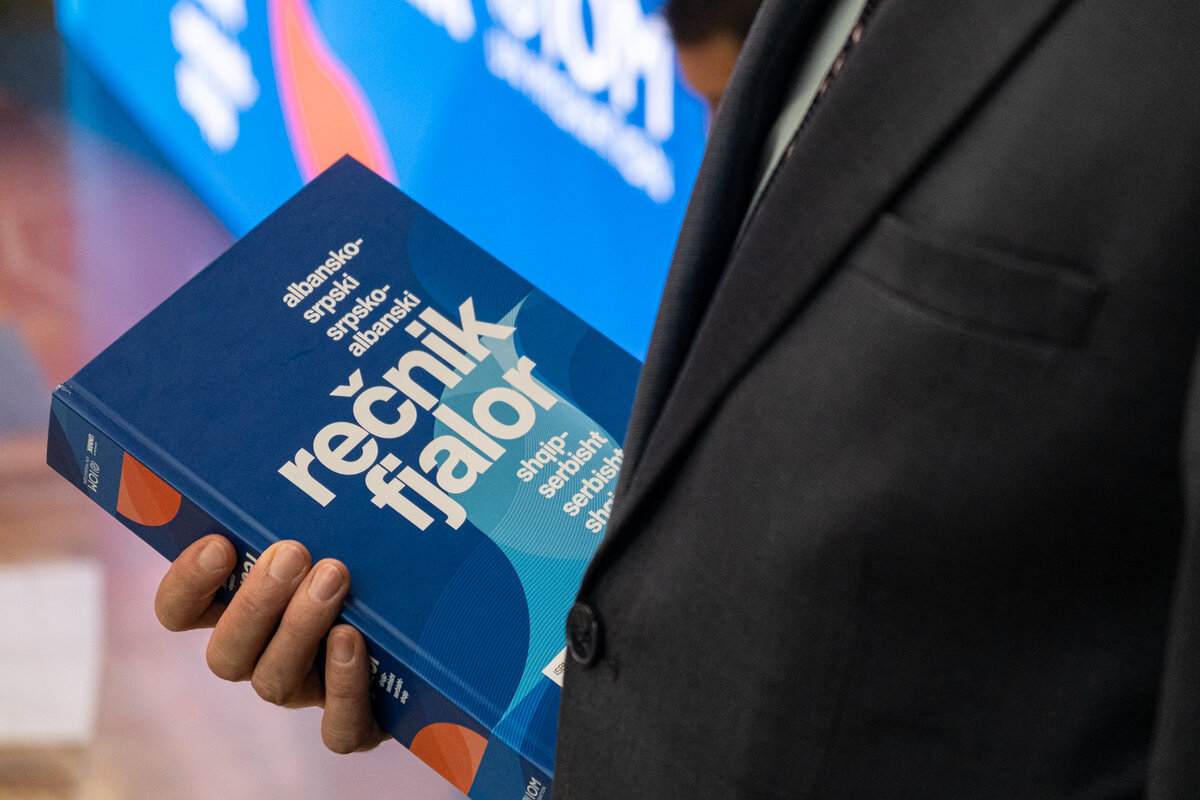
Though it was once common to be bilingual, Kosovo today has a huge linguistic divide. Research by Centre for Social Initiatives found that 5 per cent of Kosovo-Serbs speak Albanian and 31 per cent partially understand the language; while 18 per cent of Kosovo-Albanians speak Serbian and 49 per cent partially understand it.
The rollout of VocUp is part of UNMIK’s strategy to foster social cohesion and bridge these divides by promoting multilingualism. As part of this initiative to make language-learning easier and more accessible, IOM with support from UNMIK, also developed the largest Albanian-Serbian and Serbian-Albanian dictionary ever created, which is now available both online and in print with more than 80,000 words across languages.
“Learning another’s language can often be perceived as a political concession, a betrayal of loyalty, or can be linked to fears – real or perceived - of erosion of culture and heritage,” said Mr. Jerome Bouyjou, chief of the UNMIK Human Rights Office (HRO).
“However, attitudes towards language learning seem to have shifted in recent years: “When the programme was launched in 2018, we really felt like it was the right moment to provide opportunities for all people, but particularly young people, to learn to speak with their neighbours," he added.
n 2018, we really felt like it was the right moment to provide opportunities for all people, but particularly young people, to learn to speak with their neighbours," he added.
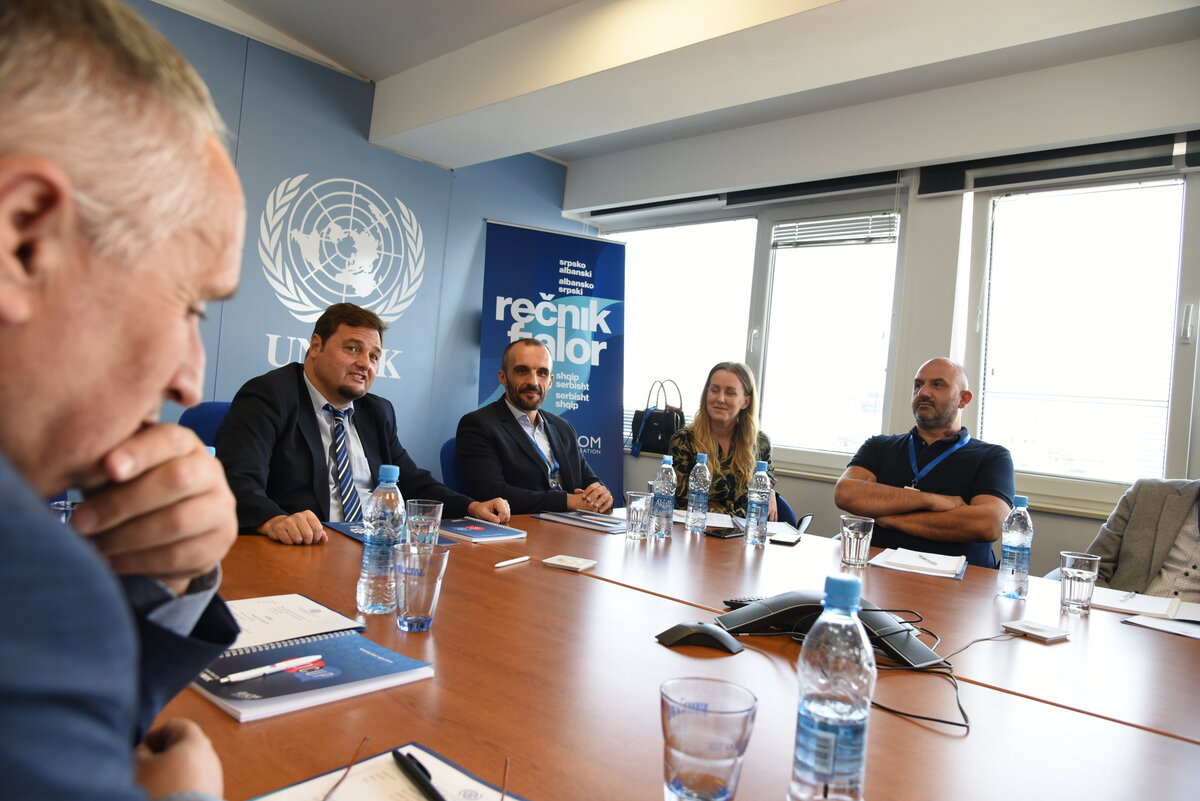
This is precisely what drove Melida Bačevac, a Kosovo-Bosniak from Novi Pazar who lives in Pristina, to start using the VocUp app. She wanted to become better acquainted with the parents of her children’s friends.
“When I meet the parents of [my children’s] friends, I don't know how to talk to them very well, [which] makes me uncomfortable because I see that they are nice people,” she says.
Now, Bačevac, like over 70,000 other regular users of VocUp, is gaining confidence in these neighbourly exchanges through the app.
Expanding Multilingualism
Like Stevanović and Bačevac, many in Kosovo feel strongly about the benefits of learning new languages. A 2018 survey commissioned by IOM found that more than 70 per cent of Kosovo-Albanians and Kosovo-Serbs would like to know one another’s language.
“Such a high percentage is significant in a place where, for the past 30 years, there have been no significant pathways offering opportunities to learn different languages through the formal education systems,” said Mr. Boyjou of UNMIK.
“This has manifested in a shortage of qualified interpreters, lack of opportunities for learning in a systematic manner, and of formalised incentives to learn Serbian or Albanian,” he added.
These numbers grew as the COVID-19 pandemic hit - explains VocUp teacher Shenaj Belagu - in order to improve access to essential information regarding mental and physical health across languages and communities. During the lockdown, registered users went up by 9%. “Multiculturalism and multilingualism remain the basis of society, because, especially during the pandemic period, we understand that we are all one!” Belagu added.
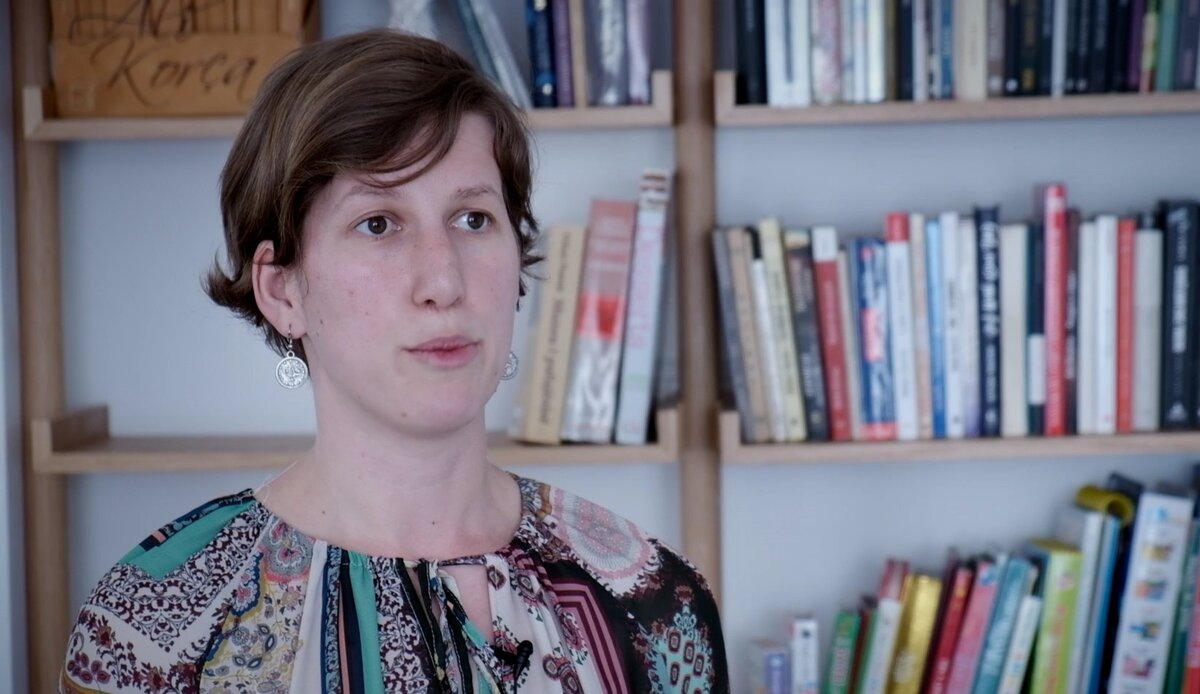
Dr. Ergon Coçaj is proof of this. When he contacted the ministry of health to volunteer his expertise and time at a dormitory being used as a quarantine facility during lockdown, his Serbian learning through the VocUp app proved to be a blessing. “After my colleagues found out that I speak Serbian, the first thing they told me was that I had saved them,” he said. “Because the first week they had difficulties communicating with the Serb community.”
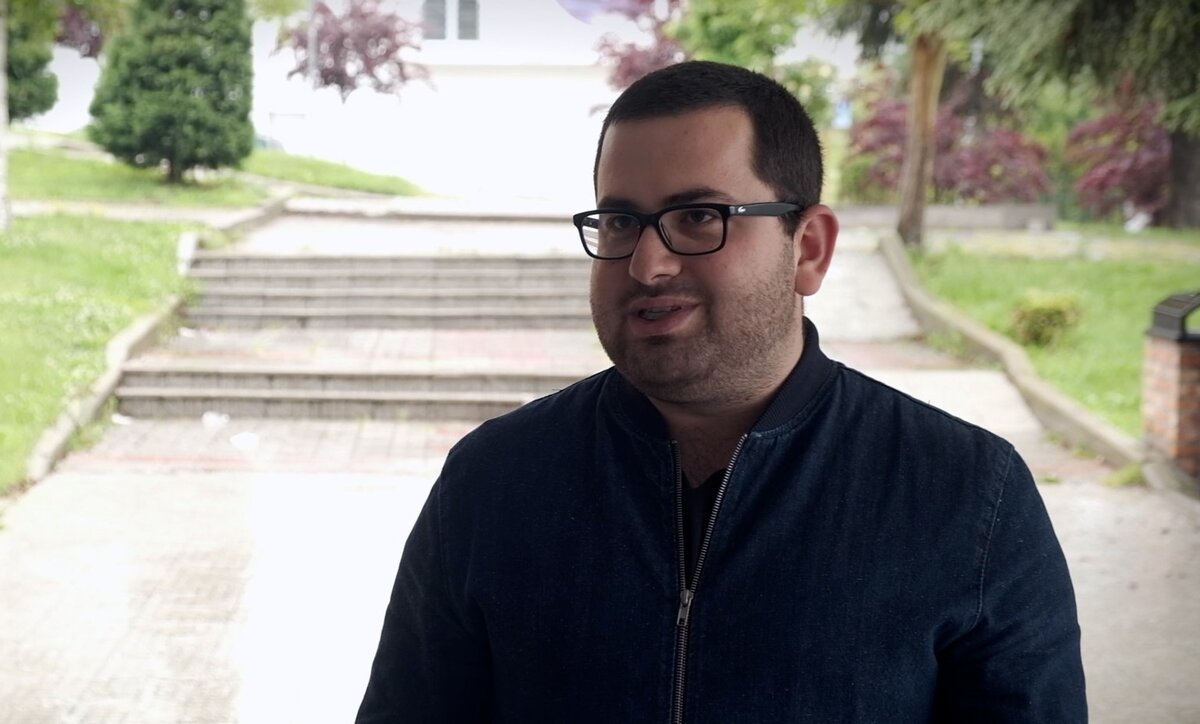
Addressing challenges and broadening horizons
Still, the challenge of finding qualified language professionals, coupled with a lack of opportunities for academic training in translation and interpretation in both official languages, has had a tangible impact on the quality of the translation of laws, regulations and other legal and administrative documents as well.
Aiming to provide sustainable opportunities and institutionalize learning of official languages, IOM partners with international community on supporting the University in Pristina’s Faculty of Philology to reaccredit BA Balkanistics and establish the Language Centre. First generation of 11 students have enrolled in October 2021. The course offers a dynamic curriculum, additional language courses and the ability to study abroad through exchange programmes—all designed to encapsulate the cultural and historical heritage of the Balkans, keeping in mind the practical and diverse needs of the bright young people of Kosovo.
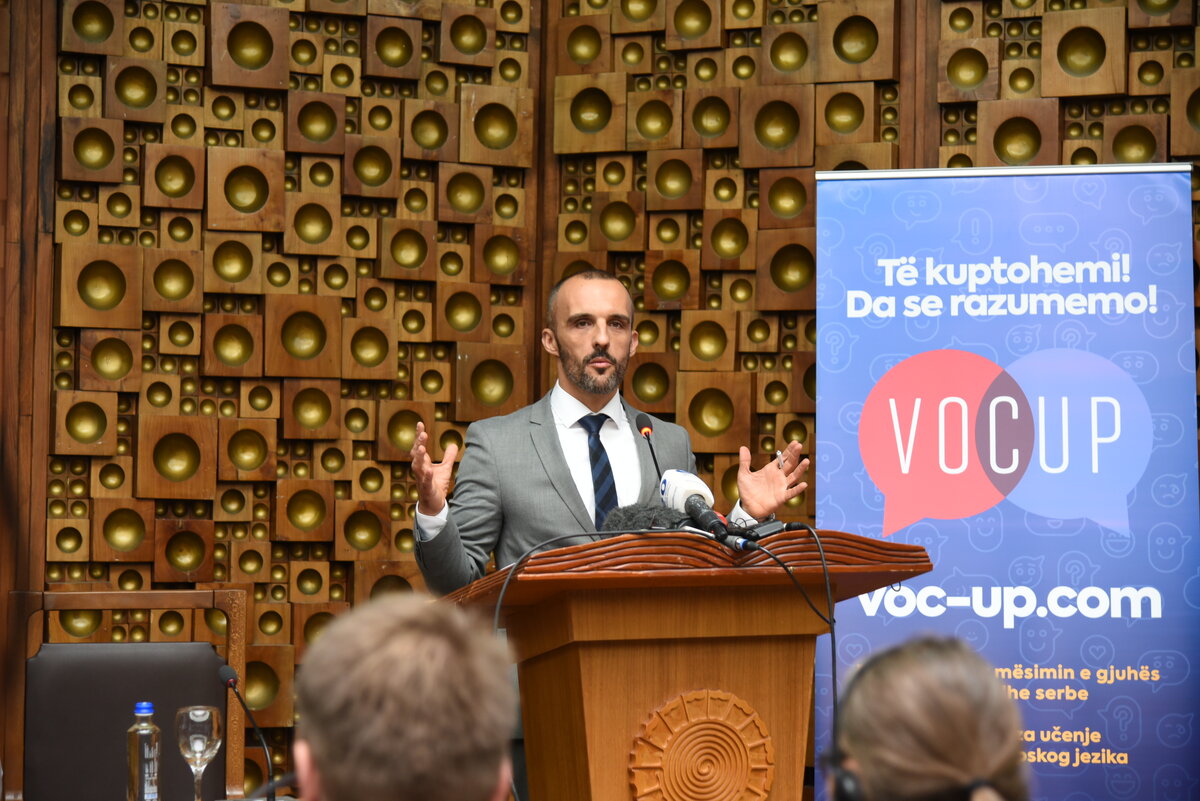
Beyond fostering connections between diverse groups, VocUp is paving the way for a more inclusive economy by improving employment market assets in Kosovo and the wider Balkans region.
Multilingualism is an asset for those seeking opportunities for movement and employment in the greater Balkans, too, according to Kosovo-Albanian VocUp user Shukrije Gori Marković, from Pristina. “It means we are not isolated because of language,” she says.
Human rights lawyer, Alfred Halili, agrees. Language, he says, is essential for people across the spectrum to work closely and fight for the same causes.
“Using VocUp has been a very good opportunity for me as a lawyer and a human rights activist to learn Serbian because it is very necessary for the profession I practice,” said Halili.
As anyone who has tried to learn a new language knows, the process requires time, patience, and commitment. Through VocUp and support for the University of Pristina’s linguistic programmes, IOM and UNMIK are making multilingualism in Kosovo more accessible and therefore bridging divides – linguistic and otherwise.
To access VocUp on your browser, visit voc-up.com. The app is also available for download on iOS and Android via the App Store and the Google Play Store.
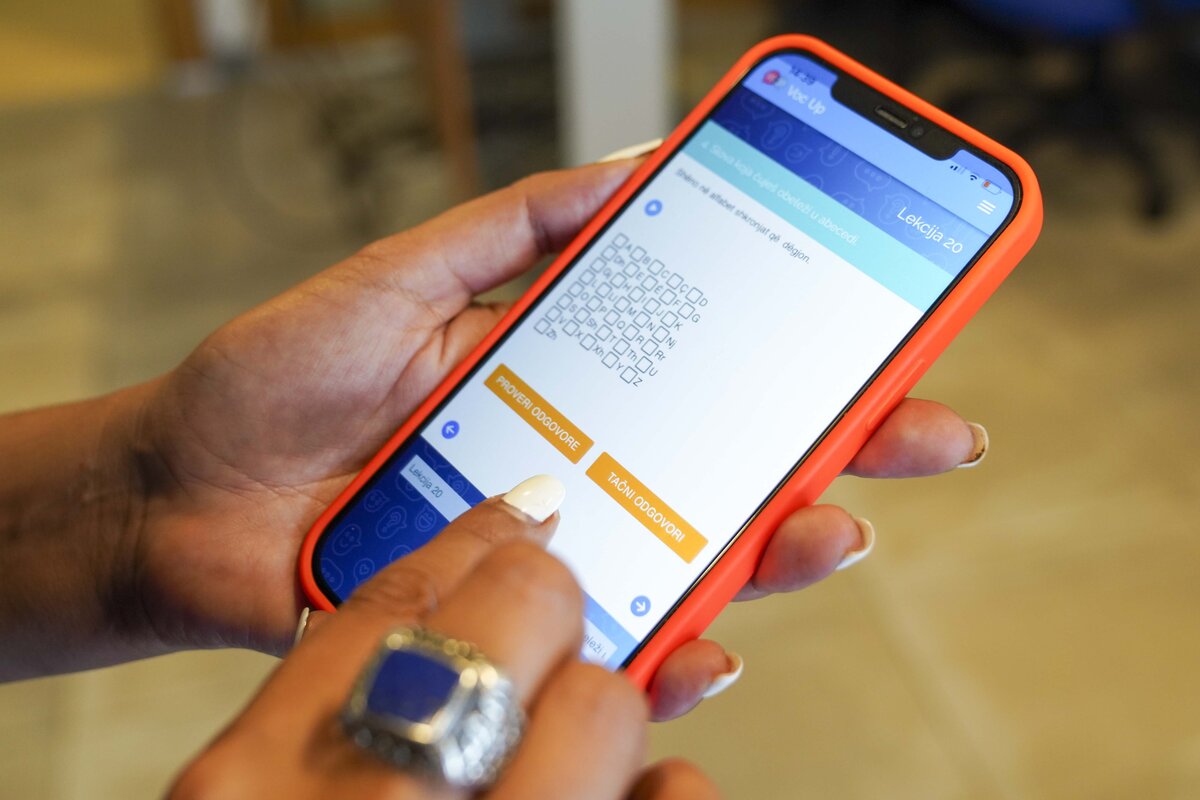
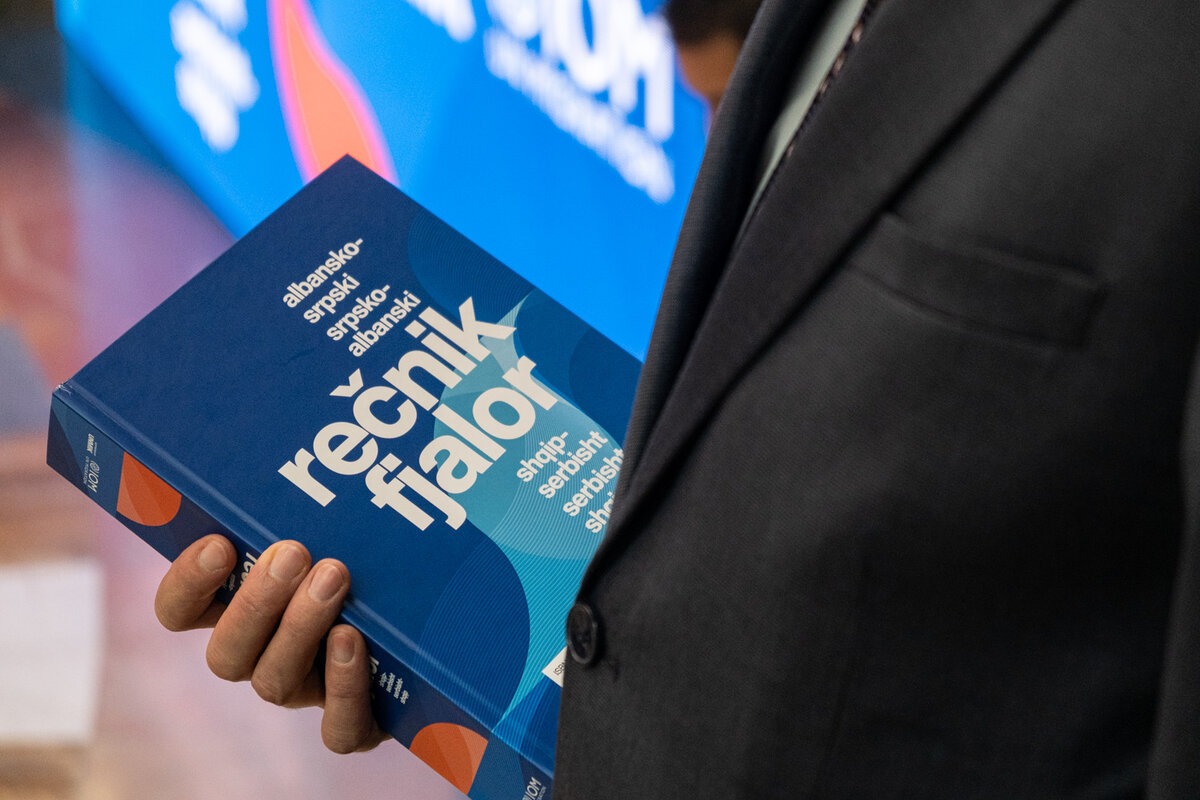
 UN
UN United Nations Peacekeeping
United Nations Peacekeeping



